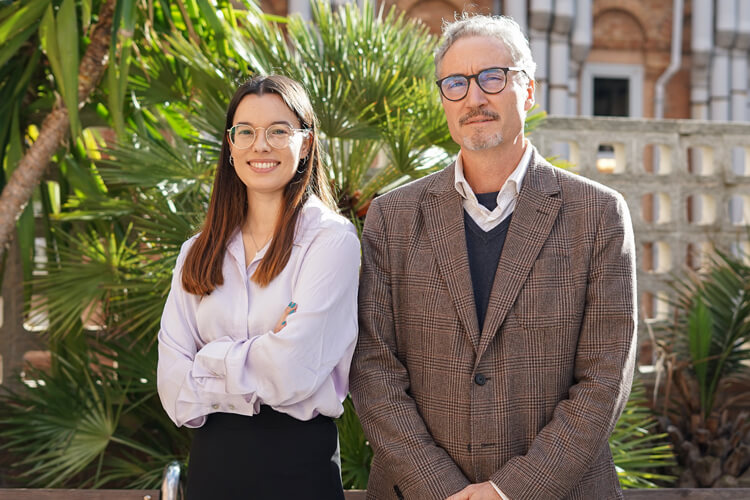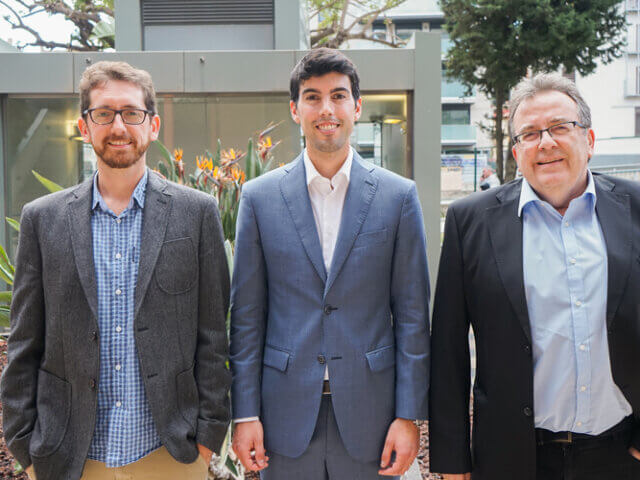New In Vitro Predictive Models for Pancreatic Cancer

Pancreatic ductal adenocarcinoma (PDAC) is the most prevalent type of pancreatic disease and is considered one of the neoplasms with the worst prognosis. It is difficult to diagnose as it is asymptomatic in early stages and manifests itself when it is already in an advanced state. Currently, PDAC is the fourth most common cause of cancer deaths in Europe and the United States. One of the most important features of PDAC is the presence of a very dense and stiff extracellular matrix, produced by stromal cells, which generates a unique microenvironment that promotes cell proliferation and resistance to drug-induced apoptosis.
Unlike two-dimensional cultures that have been widely used in recent decades to study the biology of cancer, three-dimensional cultures have many advantages in this type of study as they provide a cell conformation, dimension, and stiffness that is more appropriate for being able to recreate the microenvironment of solid tumours much better. As such, “3D” cultures represent a pathway that is more similar to the physiological one in order to study different aspects of the progression of cancer and its response to possible treatments.
Within this context, Dr Nausika Betriu has recently conducted her doctoral thesis, entitled “Modelling of the extracellular environment of pancreatic ductal adenocarcinoma to study different aspects of the progression of the disease,” done with the Tissue Engineering Laboratory in the Bioengineering Department at the IQS School of Engineering under the supervision of Dr Carlos E. Semino.
New 3D models to study the progression of pancreatic cancer
The main objective of the thesis was to develop in vitro 3D cell culture models to study different aspects of PDAC. These types of cultures, which are more physiological than 2D cell cultures, are being progressively developed to mimic different aspects of the tumour microenvironment, such as the increase in stiffness that occurs in tissues which is associated with the appearance of the tumour.
3D culture studies conducted in this research have focused on the epidermal growth factor receptor (EGFR), a tyrosine kinase receptor that is overexpressed in PDAC. The drug Ernolitib, an inhibitor of this receptor used for treating different types of cancer, was used and proved to promote EFGR degradation in 3D cultures of tumour cells. This is the first time this type of study has been conducted in 3D cultures for pancreatic cancer.
In addition, Dr Betriu studied the relationship between tumour cells and their biomechanical environment in terms of matrix stiffness by using synthetic and natural (collagen) 3D matrices. Specifically, she studied the activation of focal adhesion kinase (FAK) as this protein is able to sense the stiffness of the environment and participate in signal transduction pathways. FAK is overactivated in many epithelial cancers and its expression correlates with malignancy and the invasive potential of tumours. Studies conclude that high-stiffness synthetic matrices promote down-regulation of FAK at the protein level.
The results of this research highlight the importance of using 3D culture systems that are able to recreate tumour physiology accurately since the cellular response to treatment depends on the microenvironment in which the cells are located. This represents the first time that this type of study has been carried out with predictive models of 3D cultures, already implemented in other cancer studies such as breast cancer, and in this case PDAC, thus opening the door to the study of future treatments for this type of disease.
Related publications
Nausika Betriu, Anna Andreeva, Anna Alonso, Carlos E. Semino, Increased Stiffness Downregulates Focal Adhesion Kinase Expression in Pancreatic Cancer Cells Cultured in 3D Self-Assembling Peptide Scaffolds; Biomedicines
Nausika Betriu, Anna Andreeva, Carlos E. Semino, Erlotinib Promotes Ligand-Induced EGFR Degradation in 3D but Not 2D Cultures of Pancreatic Ductal Adenocarcinoma Cells, Cancers 2021, 13(18), 4504
Nausika Betriu, Juan Bertran-Mas, Anna Andreeva, Carlos E. Semino, Syndecans and pancreatic ductal adenocarcinoma; Biomolecules 2021, 11(3), 349
This thesis has been conducted within the PANCTKI project (New multitarget inhibitors in pancreatic cancer therapy), with funding from the Spanish Ministry of Science and Innovation – State Research Agency under the National Challenges of Society Plan RTI 2018-096455-B-100.
RELATED PEOPLE:
RESEARCH GROUP
Pharmaceutical Chemistry Group
RELATED PROJECTS
PANCTKI (Nuevos inhibidores multidiana en terapia del cancer de pancreas)




